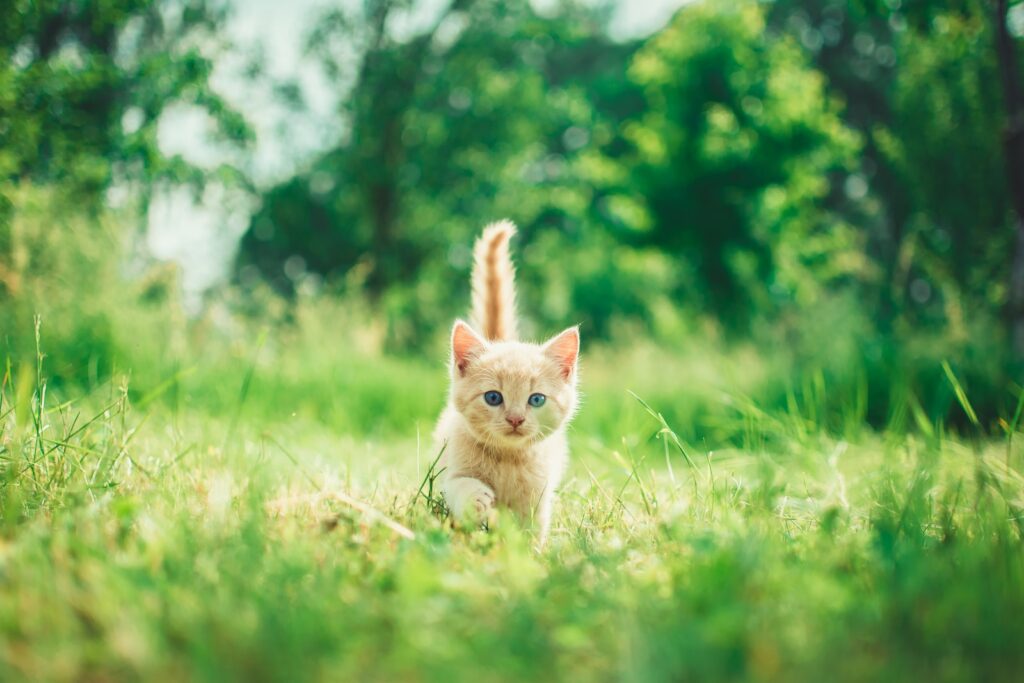Can Cats Eat Broccoli? — Yes, They Can
Broccoli is a safe and healthy vegetable that cats can consume in moderation. It can provide various nutritional benefits and add some variety to their diet.
Can Kittens Eat Broccoli?
Yes, kittens can eat broccoli as well, but it should be introduced gradually and in small quantities. Their digestive systems are still developing, so it’s important to monitor their response to broccoli.
Things to consider when feeding broccoli to kittens?
It is crucial to steam or boil the broccoli until it becomes soft before offering it to kittens. This will help ensure that it is easily digestible for their delicate stomachs. Additionally, it is recommended to consult with a veterinarian before introducing broccoli to their diet.
Nutritional Benefits of Broccoli for Cats — Why Broccoli is Good for Cats?
Vitamins and Minerals
Broccoli is packed with essential vitamins and minerals, including vitamins A, C, and K, as well as calcium, potassium, and folate. These nutrients contribute to overall feline health and support various bodily functions.
Digestive Health
The fiber content in broccoli can aid in maintaining a healthy digestive system in cats. It promotes regular bowel movements and reduces the risk of constipation.
Antioxidants
Broccoli contains antioxidants that help combat free radicals in the cat’s body, reducing the risk of certain diseases and promoting overall well-being.
Immune System Support
The vitamins and minerals present in broccoli contribute to a strengthened immune system, helping cats fight off infections and diseases more effectively.
Eye Health
The high levels of vitamin A in broccoli contribute to improved eye health in cats. It supports optimal vision and reduces the risk of eye-related issues.
Potential Allergies: Can Cats Be Allergic to Broccoli?
While allergies to broccoli are rare in cats, some individuals may have sensitivities or intolerances. It is important to monitor their reaction when introducing broccoli into their diet for the first time.
Symptoms of Broccoli Allergies in Cats
- Vomiting: Cats with broccoli allergies may experience vomiting shortly after consuming it.
- Diarrhea: Some cats may develop diarrhea as a result of broccoli intolerance or allergy.
- Gas and Bloating: Excessive gas and bloating can be signs of broccoli-related discomfort in cats.
What to Do If Your Cat Shows Symptoms?
- Consult a Veterinarian: If your cat shows any symptoms of an allergic reaction or discomfort after consuming broccoli, it is best to consult a veterinarian for proper diagnosis and guidance.
- Eliminate Broccoli: If your cat is allergic to broccoli, it is necessary to remove it from their diet to prevent further complications.
- Alternative Options: Consider offering other cat-friendly vegetables or consult with your veterinarian for suitable alternatives to incorporate into your cat’s diet.
Recommended Amount: How Much Broccoli Can a Cat Consume?
Broccoli should only be offered to cats in small quantities as an occasional treat. A good guideline is to provide no more than 10% of their overall diet from vegetables, including broccoli.
Things to Consider When Feeding Broccoli to Cats
It is essential to remove any leaves or tough stems from the broccoli before offering it to cats. Raw broccoli should be avoided as it may be difficult for cats to digest. Steamed or boiled broccoli is the best option.
How to Feed Broccoli to Cats: A Quick Guide
Before serving broccoli to your cat, ensure that it is properly cooked and cooled down to an appropriate temperature. Here are a few ways to incorporate broccoli into your cat’s diet:
Broccoli Treats
1. Cut steamed broccoli into small, bite-sized pieces.
2. Offer the broccoli treats as occasional rewards or use them for training purposes.
Broccoli Mixed with Cat Food
1. Puree steamed broccoli and mix it with your cat’s regular wet or dry food.
2. Ensure that the quantity of broccoli is kept small, so it does not overpower their regular diet.
Conclusion
Broccoli can be a nutritious addition to a cat’s diet when fed in moderation. It provides essential vitamins and minerals, promotes digestive health, and supports the immune system. However, it’s important to monitor for any adverse reactions or allergies and consult with a veterinarian if necessary. Remember to always introduce new foods gradually and prioritize your cat’s individual dietary needs.






